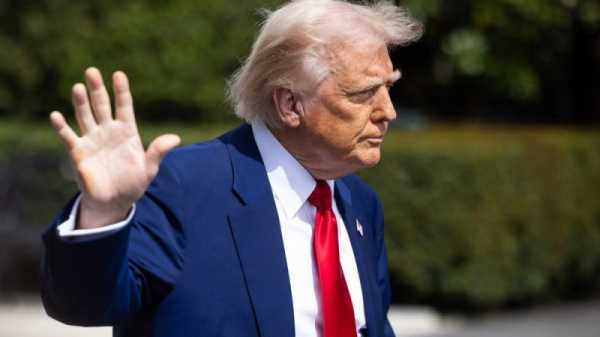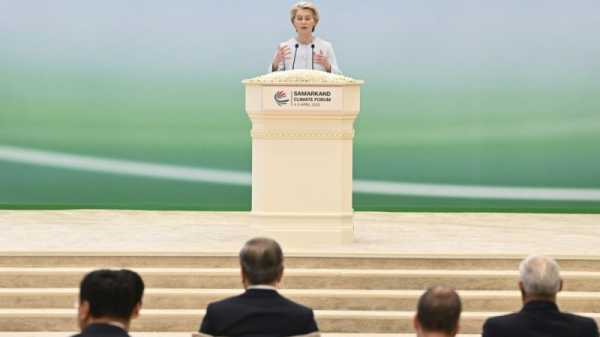
The Austrian far-right Freedom Party (FPÖ) has called on its government to defend Hungary after EU lawmakers in the European Parliament questioned Hungary’s ability to run the EU Council presidency despite lawmakers from all other Austrian parties, including in government, voting in favour of the resolution.
On the other hand, in neighbouring Germany, the Greens are pushing the government to insist and even postpone Hungary’s EU Presidency highlighting Budapest’s inability due to the poor state-of-play of the rule of law.
On Thursday the European Parliament questioned whether Hungary was able to take over the six-month rotating EU Council presidency in the second half of next year, citing rule of law concerns and a deteriorating democracy.
Read more: MEPs condemn Hungary but diplomats play down threat to EU presidency
For the FPÖ, however, Hungary fell victim to the “EU establishment”.
“This is a cowardly and unfair attack by the EU establishment against an inconvenient member state that does not say ‘yes and amen’ to everything that comes from Brussels and whose prime minister looks first and foremost to the welfare of his own people,” Herbert Kickl, the head of the FPÖ, said in a statement.
“I expect the Austrian federal government to take the initiative at all possible levels to protect our neighbouring country from the EU,” he added.
However, all other Austrian parties, including the conservative ÖVP and the Greens in government, voted in favour of the resolution.
The far-right party, which was ousted from government in 2019 over one of the biggest corruption scandals in Austrian history known as the Ibiza affair, has currently the strongest party in Austria and polling at an average of 27%, up from 16% in the past election in 2019.
Kickl has since proclaimed himself to be the “chancellor of the people” and has publicly announced his plans for the chancellorship after the coming Austrian general election in 2024.
The party has forged a strong relationship with the Hungarian Prime Minister Viktor Orban.
In May, Kickl called on Austria to “follow Orbán’s example.” “Let’s build fortress Austria,” he said at the time.
When Kickl visited Orban in Budapest a week later, he called Hungary a “haven of national self-determination and resistance against the globalist grip from Brussels”.
The German government’s ‘responsibility’
Meanwhile, Germany’s ruling Greens have called for Hungary’s EU Council presidency stint to be postponed.
“A member state like Hungary, which deliberately undermines the EU’s values and institutions, cannot preside over European legislation for six months,” Chantal Kopf, the Greens’ speaker on European matters, told EURACTIV, reflecting the Greens support of the resolution.
“It is a responsibility of the German government to check to which extent Hungary can live up to the requirements of the Council presidency. If it [is unfit to do so], we have to consider postponing Hungary’s presidency,” she added.
Also read: MEPs condemn Hungary but diplomats play down threat to EU presidency
Germany already questioned Hungary’s ability to preside over the Council before the European Parliament’s vote, with Green Europe Minister, Anna Lührmann, already expressing concerns ahead of the Parliament vote, at the start of the week.
“I have doubts to what extent Hungary will manage to oversee a successful presidency,” she told journalists ahead of a General Affairs Council meeting.
The German government has positioned itself as one of the most vocal critics of Hungary’s rule of law violations. The EU Commission received much praise from the German government when it froze the almost €22 billion that had been earmarked for Hungary in December, with German Foreign Minister Annalena Baerbock calling the move “very good”.
“This is about our values, about our rule of law as the European Union as a whole,” the Green minister said at the time.
The German crackdown on rule of law violations within the bloc was also enshrined in the coalition agreement, where the three-way coalition government encouraged the European Commission to take a tougher stance against countries that undermine the rule of law.
(Oliver Noyan, Nick Alipour | EURACTIV.de)
Read more with EURACTIV

Economy, climate change, security at heart of EU liberals’ 2024 campaignThe economy, climate change and Europe’s security will be at the heart of the campaign by European liberals at next June’s European elections, according to leading party officials.
Source: euractiv.com



